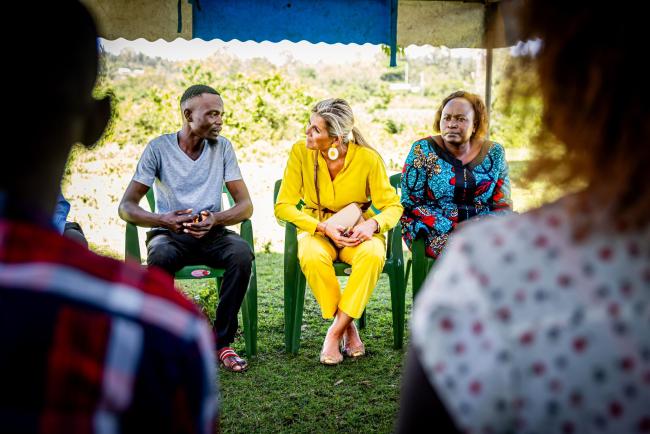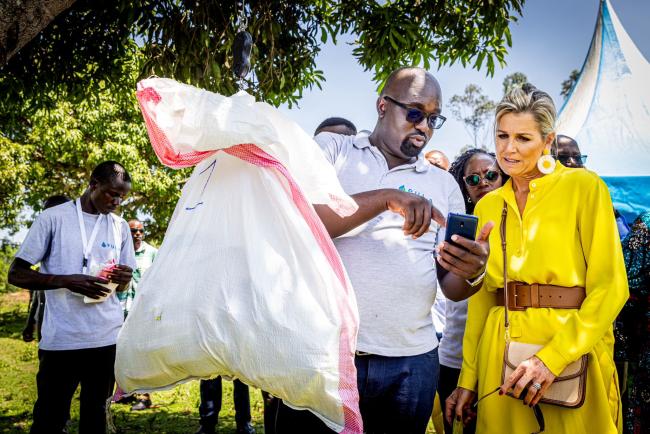
In Kenya, Pula is pioneering agricultural transformation through strategic collaboration with banks and farming suppliers. This insure-tech company is at the forefront of illuminating innovative solutions for smallholder farmers, offering digital insurance options that shield them from the unpredictable impacts of climate change and crop failure.
Pula's approach includes valuable partnerships, illustrated by its relationship with Apollo, an ag-tech company. Together, they help bundle insurance with crucial farming inputs like premium seeds and fertilizer available on credit. By mitigating the financial risks associated with input purchases and empowering farmers to embrace progressive methods, they are helping to boost food and financial security.
This is critical in Kenya, where the agricultural sector represents the country’s economic backbone, employing over 40% of the population and significantly contributing to the GDP. However, the growing specter of climate change has cast a long shadow, leading to a concerning decline in farming productivity.
In 2021, the dire impacts of climate-related events were felt by around 3 million Kenyan farmers, marking a significant increase from 2.4 million in 2019. The year 2022 brought Kenya face to face with its worst drought in four decades, pushing countless farmers into a precarious zone of food and financial insecurity. Today, approximately 5.4 million Kenyans grapple with acute food shortages. (Source: Integrated Food Security Phase Classification (IPC)).
Regrettably, despite these challenges, formal financial products with the potential to transform the lives of Kenyan farmers and shield them from climate-related risks continue to be vastly underutilized. To put it in perspective, less than 1% of Kenyans have benefited from insurance payouts to mitigate the impact of climate-related shocks, according to the 2021 FinAccess Household Survey.
Enter Pula, specializing in index-based insurance—which uses factors like rainfall or drought to determine payouts—leveraging data and remote-sensing technology to craft practical insurance models tailored for smallholder farmers. At the heart of Pula's innovative approach is the Area Yield Index Insurance (AYII), ensuring that farmers are shielded against low yields and compensated at the end of the season. “By offering bundled insurance through various distribution channels, Pula is ensuring that insurance is accessible to those who need it the most, especially previously uninsured farmers,” explained the company’s President and Co-Founder Rose Goslinga in a discussion with UNSGSA Queen Máxima during a visit to a farm in Kisumu, near Lake Victoria, in October 2023.

Across 22 countries, Pula has reached 9.6 million farmers, with over two million Kenyan farmers reaping the benefits of Pula's offerings. Beyond the numbers, the Special Advocate met some faces of Pula's impact in Kisumu: Onesmus Musyoki Mutungi and Dorcas Lonana, two farmers whose lives have been profoundly changed by Pula's insurance.
Onesmus, a father of four with a six-acre farm, grows green grams, sorghum, and sunflower. He told the UNSGSA that he has received payouts twice, amounting to the equivalent of $39 and $57 USD (or approx. 6,000 and 9,000 Kenya shillings), after suffering losses to his harvest, only growing enough for his own household’s consumption but not enough to sell. He used the payments to cover school fees and expand his farm from four to six acres, rather than having to borrow money due to the losses. Onesmus has also benefited from farmer education and insurance messages, and he's eager to continue investing in insurance for the upcoming season, understanding the substantial benefits it provides.
Dorcas, a mother of four with a six-acre farm growing green grams and sorghum, has received payouts totaling $55 USD or approx. 8,200 Kenya shillings. These payouts have been instrumental in covering her children's school fees after poor harvests, she said to the Special Advocate. Like Onesmus, she's also gained valuable insights from farmer education and insurance messages, adopting good farming practices. Dorcas told the UNSGSA that she not only understands the importance of insurance but also serves as a village champion, spreading the word about its benefits to her community.
These personal stories highlight the tangible impact of Pula's insurance on smallholder farmers, enabling them to overcome crop failures, secure their families' well-being, and invest in the future.
Pula's data and digital products are further reinforcing its commitment to modernizing agricultural insurance. The company has developed a cloud-based digital pricing platform known as the Pula Insurance Engine (PIE), used to price and structure indices for crop yield insurance and weather indices. This platform brings transparency to the underwriting process, instilling confidence in insurance and reinsurance partners.
Pula's impact in Kisumu is evidence of the potential of innovation, especially for traditionally underserved groups like smallholders. The bundling of inclusive digital financial services and access to essential resources such as premium seeds and fertilizer, has not only increased food and financial security but also resilience for many. As Pula presses forward, the company aims for more farmers to be safeguarded, and has a vision of a more climate-resilient future to help smallholders flourish.
